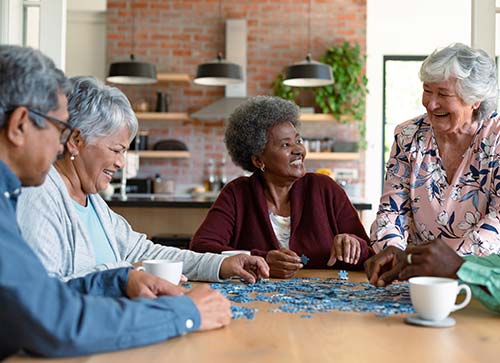Using Medicaid To Pay For Home Care
When it comes to elder care, residents of New York state have the option of obtaining home care for themselves or a loved one in lieu of seeking nursing home care. If you have determined that home care is a viable option for you or your loved one, consider applying to Medicaid to pay for it.
Like nursing home care, home care can be paid by Medicaid if the eligibility requirements are satisfied. Unlike the Medicaid nursing home program, there are no transfer of asset rules for Medicaid home care and thus, no five-year lookback. In addition, New York’s “spousal refusal” law applies. A person can either transfer assets to his or her spouse, children and/or loved ones and obtain home care Medicaid.
A further benefit of Medicaid home care versus Medicaid nursing home care is that the person applying for Medicaid for in-home care can place his or her income that exceeds the amount permitted by Medicaid into a “community pooled trust” administered by a nonprofit, and said income can then be used to pay for the applicant’s expenses.
Would you like to know more about Medicaid home care? Call the experienced Westchester County, New York, lawyers at Enea, Scanlan & Sirignano, LLP: 914-269-2367. Read Home Is Where The Heart Is: The Medicaid Home Care Alternative …
Physical Qualifications For Home Care Medicaid
To receive home care services, the person’s health and safety must be able to be maintained at home. These require the person’s medical condition to be “stable;” that is, it is not likely to either deteriorate or improve and does not need medical or nursing advisement to determine changes in the care plan.
Another requirement to qualify under this category is that the person needs some assistance to prevent a health or safety crisis from arising, short of receiving skilled care.
The home care program is a custodial level of care that requires the prior approval of Medicaid. (It is not covered by Medicare.)
Under home care Medicaid, the person requiring care must need assistance with at least two activities of daily living (ADLs). The Medicaid home care program specifically provides assistance with ADLs, including:
- Bathing the person in bed, tub or shower
- Dressing or assisting with dressing
- Grooming, including hair care and shaving
- Toileting and toileting assistance
- Assistance with walking
- Assistance with transfer from bed to chair or vice versa
- Preparation of modified diets (low fat, low sugar)
- Administering medication assistance with the use of medical supplies and equipment
Questions About In-Home Care? Call Us.
If you have questions about what is available to you under in-home care, call one of the experienced elder law attorneys at Enea, Scanlan & Sirignano, LLP, in White Plains and Somers, New York, at 914-269-2367 today. If you prefer, you may complete this online form.

